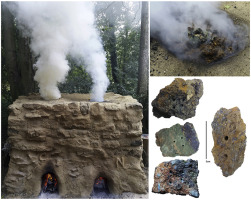Steps to Ensure Ethical Sourcing of Copper Ore
Ethical sourcing of copper ore is increasingly becoming a priority for businesses due to the growing awareness of environmental sustainability, human rights, and responsible business practices. Copper is an essential material for industries like construction, electronics, and renewable energy, but its mining and procurement processes can have significant environmental and social impacts. This blog outlines the key steps businesses can take to ensure ethical sourcing of copper ore while promoting transparency, fairness, and sustainability in the supply chain.
Why Ethical Sourcing of Copper Ore is Important
Environmental Responsibility
- Copper mining has a significant environmental footprint, including habitat destruction, water pollution, and carbon emissions.
- Ethical sourcing minimizes these impacts through sustainable practices.
Human Rights Protection
- Ensures that copper mining operations do not exploit workers or involve forced labor and unsafe working conditions.
Compliance with Regulations
- Ethical sourcing aligns with international laws and standards, such as the OECD Due Diligence Guidance for Responsible Supply Chains.
Reputation Management
- Businesses that prioritize ethical sourcing enhance their brand image and build trust with customers and stakeholders.
Economic Benefits
- Supporting fair trade practices can uplift mining communities and contribute to sustainable economic development.
Steps to Ensure Ethical Sourcing of Copper Ore
1. Conduct Supplier Due Diligence
- Evaluate suppliers' mining and operational practices to ensure compliance with ethical standards.
- Request certifications and audits to verify adherence to environmental and social governance (ESG) criteria.
2. Trace the Supply Chain
- Use blockchain technology or similar tools to track the origin of copper ore and ensure transparency in sourcing.
- Identify and eliminate sources linked to conflict regions or unethical practices.
3. Partner with Certified Suppliers
- Work with suppliers certified by recognized organizations, such as the Responsible Minerals Initiative (RMI) or Fair Trade.
- Prioritize suppliers that implement sustainable mining technologies and fair labor practices.
4. Conduct Environmental Impact Assessments
- Ensure mining operations include measures to mitigate environmental damage, such as water recycling, land restoration, and emission controls.
- Partner with suppliers that adopt renewable energy in their operations.
5. Promote Community Engagement
- Support mining companies that invest in local communities by creating jobs, building infrastructure, and improving living conditions.
- Encourage suppliers to involve local stakeholders in decision-making processes.
6. Implement Third-Party Audits
- Conduct regular third-party audits of suppliers to monitor compliance with ethical sourcing guidelines.
- Address and resolve non-compliance issues promptly.
7. Educate and Train Procurement Teams
- Provide training to procurement teams on identifying and avoiding unethical suppliers.
- Equip them with the tools and knowledge to ensure responsible sourcing practices.
8. Use Recycled Copper
- Incorporate recycled copper into the supply chain to reduce reliance on freshly mined ore, lowering environmental and social impacts.
9. Align with Global Standards
- Follow international guidelines, such as the UN Guiding Principles on Business and Human Rights, to ensure ethical practices.
10. Publish Transparency Reports
- Share detailed reports on sourcing practices, supplier audits, and sustainability initiatives to demonstrate commitment to ethical sourcing.
Challenges in Ethical Sourcing of Copper Ore
Complex Supply Chains
- Tracking the origin of copper ore across multiple suppliers and intermediaries can be challenging.
Cost Implications
- Ethical sourcing may involve higher costs due to certifications, audits, and supplier compliance requirements.
Lack of Supplier Transparency
- Some suppliers may not disclose full details of their operations, making it difficult to verify ethical practices.
Geopolitical Instability
- Copper mines in conflict-prone regions may present challenges in ensuring ethical sourcing.
Benefits of Ethical Sourcing
Sustainability
- Promotes environmentally friendly practices and reduces the carbon footprint of copper mining.
Social Impact
- Improves the welfare of mining communities by ensuring fair wages and safe working conditions.
Regulatory Compliance
- Protects businesses from legal liabilities and penalties associated with unethical sourcing.
Customer Trust
- Builds consumer confidence and loyalty by showcasing a commitment to responsible practices.
Future Trends in Ethical Sourcing of Copper Ore
Technology Integration
- Blockchain and AI will play a larger role in ensuring transparency and traceability in supply chains.
Circular Economy Practices
- Increased focus on recycling and reusing copper to reduce dependency on mining.
Collaborative Efforts
- Industry-wide collaborations to establish standardized ethical sourcing frameworks and certifications.
Green Energy Adoption
- Mining operations powered by renewable energy will gain prominence in ethical sourcing initiatives.
Conclusion
Ethical sourcing of copper ore is a critical step toward building a sustainable and socially responsible supply chain. By implementing due diligence, partnering with certified suppliers, promoting transparency, and embracing sustainable practices, businesses can ensure that their copper sourcing aligns with global ethical standards.
As industries and consumers increasingly prioritize sustainability, businesses that adopt ethical sourcing practices will not only contribute to a greener future but also gain a competitive edge in the market. By taking these steps, the copper industry can strike a balance between meeting global demand and protecting the planet and its people.
